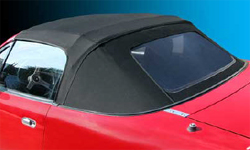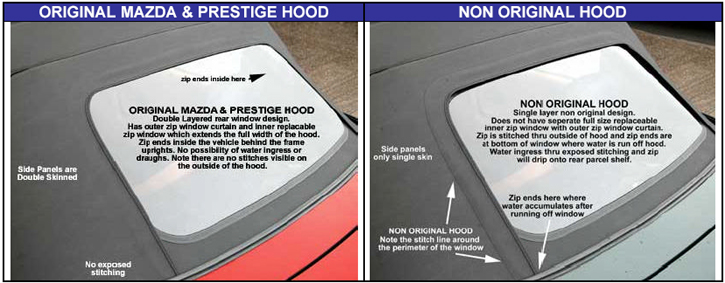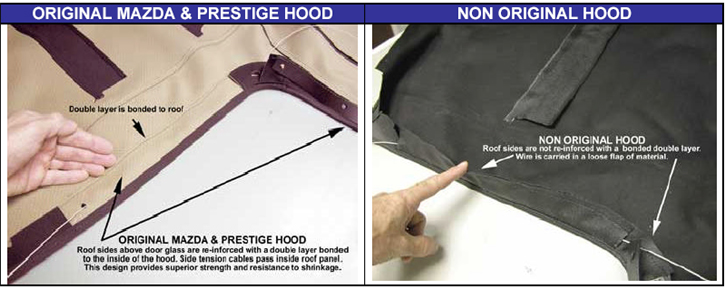HOOD INFORMATION
PAGE
Please read the important information below before you make a decision
as to who fits your hood.
 |
The
hood market is rife with a variety of imitation hoods claiming
to have various design improvements of one form or another.
There are many hoods that are made to non-original design
specifications and there are many inherent problems associated
with some designs. In order to make an informed choice you
need to be aware of many features of the original hood design,
how it is constructed and how to identify those hoods which
do not adhere to the original Mazda design. Below you will
see photographs of both the Prestige Hood which adheres to
the original design and construction methods and photographs
of an imitation hood that is widely available. Sometimes such
hoods are offered with certain claims of new improved design
etc. The photographs below will enable you to identify the
original design |
|
hood against a non original hood. We will point out the various
differences between the two types of hood to enable you to make
a more informed choice when comparing. |
|
Original
rear zip window design eliminates any possibility of water
leakage through zip. See the difference between these
two photos. Bonded Double
Faced Edges to Resist Shrinkage See the difference between these
two photos. Some after market hoods that we have seen omit to glue the re-enforcement material to the inside of the hood. (See right photo). The material is simply sewn on as a loose flap through which the tension cables will pass. This loose flap of material is not providing the same function as the original glued re-enforcements on the original Mazda and Prestige Hoods. The hoods sides remain a single thickness providing considerable less resistance to shrinkage and damage. In addition the side cable passes through the loose flap of material and therefore does not hold the sides of the hood as well as it was intended too. This non original design cuts costs from the manufacturing process at the expense of losing the obvious benefits found in the original design.sts. We hope that the above information will enable you to make a more informed choice when choosing who fits your hood.
|

